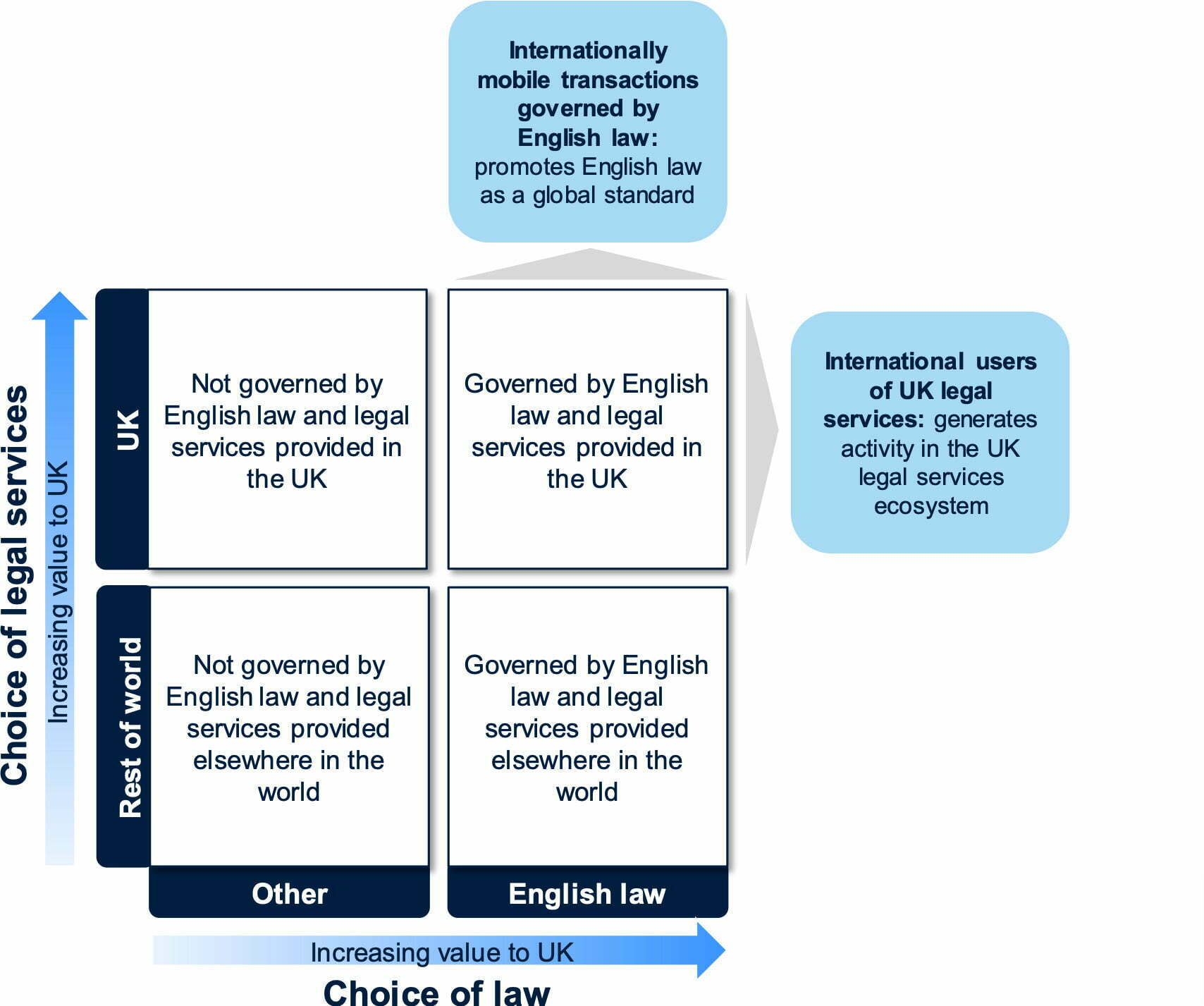Globalisation, trade and digitisation have enabled an increasing proportion of global transactions to be internationally mobile, allowing parties to choose the law that governs the contract. Whether these internationally mobile transactions involve the use of English law and/or UK legal services will determine the economic value that these transactions bring to the UK.
The value generated for the UK through the mechanisms discussed in sections 3.2 and 3.3 above will be maximised when both:
- internationally mobile transactions are governed by English law;
- UK legal services are used when the jurisdiction of the courts of England and Wales or a UK-seated arbitration are specified in the contract.
The figure below illustrates how different choices of law and the use of legal services deliver value to the UK economy in a number of ways. [1]‘Legal services’ here includes dispute resolution when England and Wales is specified in the jurisdiction clause of the contract or UK-seated arbitration is specified.


